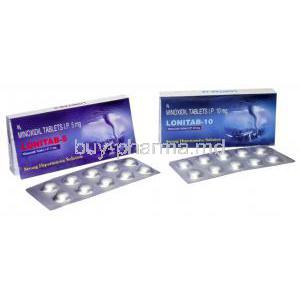Amlodipine
Uses
Amlodipine is used in the treatment of hypertension (high blood pressure), Amlodipine can help lower blood pressure in patients suffering from hypertension.
How it Works
Amlodipine is also known as calcium channel blockers or calcium ion antagonists, Amlodipine works in the body by widening the blood vessels, mwhich makes it easier for the heart to pump blood around the body and help increase the supply of blood and oxygen to the heart. Amlodipine as Calcium channel blockers do not change the amount of calcium in your blood or bones. Amlodipine works by blocking the amount of calcium that goes into the 'smooth' muscle cells in the walls of the arteries and in the heart. Calcium is needed for muscles to contract, so reducing the amount of calcium causes the muscle cells to relax, allowing more smoother blood flow and directly treating hypertension
Common Side effects
Patients who take Amlodipine may suffer from such side effects;
Fatigue,
Sleepiness,
Flushing (sense of warmth in the face, ears, neck),
Headache,
Ankle swelling,
Nausea,
Dizziness,
Palpitations,
Edema,
Abdominal pain
Telmisartan
Uses
Telmisartan is used in the treatment of increased blood pressure, heart failure, heart attack and diabetic kidney disease.
How it Works
Telmisartan is known as an angiotensin receptor blocker which is also called an angiotensin-II receptor antagonist (AIIRA). Telmisartan is used to treat high blood pressure or hypertension. Telmisartan works by blocking the effect of a natural chemical made in the bloodstream, called angiotensin II. Angiotensin II causes the blood vessels to narrow, so by blocking this effect, telmisartan allows the blood vessels to relax and widen. The pressure within the blood vessels is then reduced. This also makes it easier for the heart to pump blood around the body.
Common Side effects
Patients who take Telmisartan may suffer from such side effects;
Fatigue,
Orthostatic hypotension,
Weakness,
Dizziness,
Anemia,
Renal impairment,
Vertigo,
Increased potassium level in blood
Chlorthalidone
Uses
Chlorthalidone is used to treat edema, heart failure, elevated blood pressure and kidney stones.
How it Works
Chlorthalidone reduces blood pressure and swelling by removing excess water and electrolytes in the body.
Common Side effects
Headache, nausea, increased uric acid, decreased blood potassium concentration, glucose intolerance, change in blood lipid
Expert advice
Avoid taking alcohol to promote the side effects of chlorthalidone.
Please be aware of heat stroke and dehydration during exercise and hot seasons. Follow your doctor's instructions for the amount and type of fluid needed.
Do not take chlorthalidone and potassium salts or potassium-supplemented diuretics if you are taking ACE inhibitors.
FAQ
Q. Is chlorthalidone an antiaging agent, potassium sparing diuretic, sulfa drug, benzodiazepine, blood diluent?No, chlorsalidone belongs to a class of drugs called thiazide diuretics.
Q. Is chlorthalidone a diuretic?Yes, this drug is a diuretic, also called a "hydraulic".
Q. Is chlorthalidone better than chlorothiazide?Chlorsalidone and chlorothiazide belong to the same category of drugs and show similar effects, but their effects are different depending on individual response.
Q. Can I take ibuprofen, exedrin, tylenol and chlorthalidone together?There are no known drug interactions with these. However, always consult your doctor about the use of the medicine.
Q. Does amitriptyline cause weight loss? Do you also have cough, low potassium, high blood pressure or erectile dysfunction?Amitriptyline can cause low potassium and high blood pressure. Talk to your doctor about possible side effects.
Q. Is chlorthalidone a diuretic?Yes, this drug is a diuretic, also called a "hydraulic".
Q. Is chlorthalidone better than chlorothiazide?Chlorsalidone and chlorothiazide belong to the same category of drugs and show similar effects, but their effects are different depending on individual response.
Q. Can I take ibuprofen, exedrin, tylenol and chlorthalidone together?There are no known drug interactions with these. However, always consult your doctor about the use of the medicine.
Q. Does amitriptyline cause weight loss? Do you also have cough, low potassium, high blood pressure or erectile dysfunction?Amitriptyline can cause low potassium and high blood pressure. Talk to your doctor about possible side effects.














